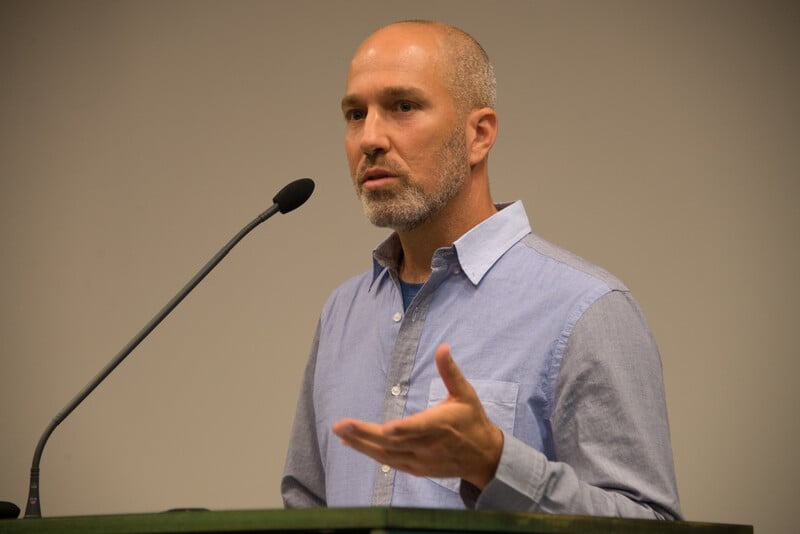Yonatan Shapira, a former Israeli Air Force (IAF) rescue helicopter pilot who resigned in 2003, has emerged as one of the most prominent Israeli voices speaking out against military operations in the occupied Palestinian territories and Gaza…
His journey from patriotism to protest spans over two decades and reflects a deep moral reckoning with the consequences of Israeli state policy. In a series of interviews and public statements, Shapira has not only condemned what he calls a genocide in Gaza but also questioned the very foundations of Israeli military culture.
A Background in Zionism and the IDF
Born into a devoutly Zionist family, Shapira spent his early years on an Israeli Air Force base where his father was a squadron commander. He followed in those footsteps, becoming a rescue helicopter pilot and serving in the IDF during the Second Intifada. But over time, Shapira’s perspective changed dramatically.
In a March 29, 2024 interview with JURIST, Shapira explained, “I was born in a very Zionist family… My father was a squadron commander. I grew up immersed in that culture.” He also spoke of the erasure of Palestinian identity in Israeli discourse, saying, “Palestine, or the term ‘Palestinians,’ was not used. Everyone used the term ‘Arab Israelis.'”
The Pilots’ Letter: Breaking Ranks
In 2003, Shapira co-authored what became known as the “Pilots’ Letter,” a declaration signed by 27 current and former Israeli Air Force pilots who refused to carry out airstrikes in the occupied territories. The letter stated:
“We, for whom the Israel Defense Forces and the Air Force are an inalienable part of ourselves, refuse to continue to harm innocent civilians. These actions are illegal and immoral, and are a direct result of the ongoing occupation which is corrupting the Israeli society.”
Published on September 25, 2003, the letter sparked immediate backlash. Then-Defense Minister Shaul Mofaz denounced the pilots, stating their protest “benefits terror groups” and undermines national security (Haaretz, Sept. 24, 2003). The Guardian also reported that some of the pilots had participated in controversial missions, including targeted assassinations that caused civilian casualties.
A Growing International Profile
Shapira’s dissent only grew in the years that followed. In 2010, he joined a Jewish boat, the Irene, attempting to break the Gaza blockade. During the raid, he was tasered by Israeli soldiers. In a December 15, 2016 interview with Middle East Eye, he said:
“I simply stopped caring only about my own people and started caring about everyone. I stopped identifying solely with an ethnicity, a tribe, a religion, or a color. It’s a shift in perspective that changes everything.”
In a February 10, 2015 interview with The Electronic Intifada, Shapira reflected on his transformation:
“I was part of a terror organization.”
He cited the 2002 bombing of Hamas leader Salah Shehadeh, which killed 14 civilians, as a pivotal moment in his disillusionment with the Israeli military. He later co-founded Combatants for Peace, a joint Israeli-Palestinian movement advocating nonviolent resistance.
In a May 17, 2021 interview with Middle East Monitor, Shapira criticized the indoctrination within Israeli society:
“As a child in Israel, you are brought up in a very strong Zionist militaristic education. You don’t know almost anything about Palestine, you don’t know about the 1948 Nakba, you don’t know about ongoing oppression.”
Shapira described the Israeli government and military as “terrorist organizations” led by “war criminals.”
His activism also brought him into contact with the Freedom Flotilla Coalition, where he joined multiple efforts to deliver humanitarian aid to Gaza by sea. In a July 27, 2018 statement for the group, he urged Israeli soldiers to think long-term:
“Think about what you will tell your grandchildren in many years from now and not about what your friends will say about you today. Refuse to take part in this ongoing war crime.”
Condemning Gaza Strikes and Western Complicity
In a March 26, 2025 interview with Anadolu Agency, Shapira condemned Israel’s latest operations in Gaza:
“No other force in the region has killed as many innocent civilians as Israeli pilots.”
He called out Western complicity:
“Most Western and European countries are complicit in this genocide. Their failure to stop supporting Israel is the reason it continues.”
Shapira emphasized that justice must be pursued:
“The perpetrators of these massacres in Gaza should not escape justice. They must be arrested, interrogated, and sentenced to life in prison.”
He added:
“Netanyahu’s government doesn’t care about the Israeli hostages or even the Israeli public. It only cares about staying in power.”
From Insider to Outsider
Despite his elite military background, Shapira is now viewed by many in Israel as a traitor. He has been attacked in the press, blacklisted from military circles, and routinely denounced by government officials. Yet his message resonates with a growing international audience seeking accountability for Israel’s actions in Gaza and the occupied territories.
His journey is one of conscience over conformity, and his voice—once echoing through a cockpit—now echoes in global forums for human rights. Shapira is not only a whistleblower from within the Israeli defense establishment but also a powerful symbol of moral resistance.
Yonatan Shapira’s transformation from IAF pilot to outspoken activist represents a deep moral reckoning rarely seen in military circles. His decision to break ranks, call out his government, and risk personal safety for the sake of justice has placed him at the center of one of the most contentious debates in international politics. While the Israeli state dismisses his claims as dangerous and disloyal, Shapira continues to speak with unwavering conviction, demanding an end to impunity and the beginning of accountability—not just for Israel, but for its enablers abroad.
As the humanitarian crisis in Gaza deepens and international calls for justice mount, Shapira’s voice will remain a powerful challenge to the status quo. He reminds the world—and Israel itself—that military power without moral restraint leads only to tragedy, and that silence, in the face of oppression, is complicity.




